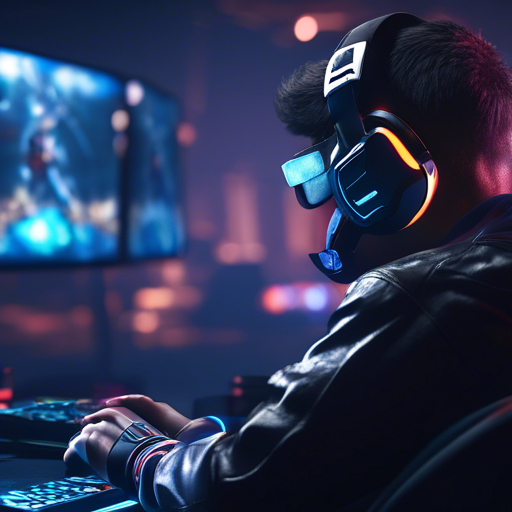Unveiling the Legal Risks of Using Cheats in Competitive Gaming

Unveiling the Legal Risks of Using Cheats in Competitive Gaming
Welcome to our in-depth exploration of the legal implications surrounding the use of cheats in competitive gaming. As the gaming industry continues to grow exponentially, the issue of cheating has become a significant concern, not only within the gaming community but also in the legal realm. In this article, we will delve into the various legal risks associated with cheating in competitive gaming and shed light on the potential consequences for individuals engaging in such activities.
The Rise of Cheating in Competitive Gaming
Cheating in competitive gaming has been a persistent problem, with players resorting to various forms of cheats, hacks, and exploits to gain an unfair advantage over their opponents. From aimbots in first-person shooters to wallhacks in battle royale games, the use of cheats can significantly impact the integrity of competitive gameplay.
According to a recent survey conducted by [Gaming Insights], approximately 40% of gamers admitted to using cheats in online multiplayer games. This alarming statistic underscores the prevalence of cheating in the gaming community and highlights the need for a closer examination of the legal ramifications.
Legal Frameworks and Consequences
While cheating in video games may seem like a harmless activity, it can have serious legal consequences. Many game developers explicitly prohibit the use of cheats in their end-user license agreements (EULAs) and terms of service. By violating these agreements, players risk facing legal action from game developers and publishers.
Moreover, cheating in online games can also constitute a violation of intellectual property rights, as cheats often involve unauthorized modifications to the game's code or assets. This can lead to copyright infringement claims and legal disputes over ownership of the cheat software.
Table: Legal Risks of Using Cheats in Competitive Gaming
| Legal Risk | Consequences | |---------------------------|---------------------------------------------------| | Breach of EULA | Account suspension or permanent ban | | Copyright Infringement | Legal action, fines, or damages | | Fraudulent Misrepresentation | Civil lawsuits, monetary penalties | | Violation of Fair Play Policies | Disqualification from tournaments, loss of prizes |Enforcement and Litigation
Game developers have become increasingly vigilant in detecting and penalizing cheaters. Many companies employ sophisticated anti-cheat software and algorithms to identify suspicious behavior and unauthorized modifications. In some cases, developers may pursue legal action against cheat developers and distributors to protect their intellectual property rights.
Recent high-profile cases, such as the lawsuit filed by [Epic Games] against a popular cheat provider, demonstrate the willingness of game companies to take legal action against individuals involved in the creation and distribution of cheats.
Protecting Fair Play and Integrity
Ensuring fair play and maintaining the integrity of competitive gaming are paramount for the long-term sustainability of the industry. Cheating not only undermines the competitive spirit of gaming but also erodes trust among players and spectators.
- Fair Play: Upholding fair play standards is essential to creating a level playing field for all participants.
- Integrity: Preserving the integrity of competitive gaming safeguards the reputation of esports and professional gaming leagues.
FAQs: Understanding the Legal Risks of Cheating in Gaming
Q: Can I get sued for using cheats in a video game?
A: Yes, using cheats in a video game can potentially lead to legal action, including lawsuits for copyright infringement or breach of contract.
Q: What are the consequences of cheating in esports tournaments?
A: Cheating in esports tournaments can result in disqualification, loss of prizes, and damage to one's reputation within the gaming community.
Q: How can game developers detect cheaters?
A: Game developers use a combination of anti-cheat software, player behavior analysis, and community reporting to identify and penalize cheaters.
As the gaming landscape continues to evolve, it is crucial for players to understand the legal risks associated with cheating and to prioritize fair play and sportsmanship in competitive gaming.
